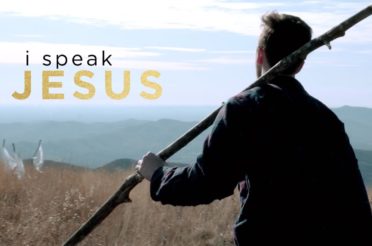By Roger Barbee
Our small mill house in south central North Carolina had a large kitchen that was the hub of our lives. We cooked there, watched television there, ate there, napped there, and socialized there. It was a well-used room especially during the cold months because the clunky oil stove provided the only heat and comfort. On the south wall was a large cabinet with a sink, a white porcelain one that was part drainboard. Above the sink was a double window that looked over our back yard and the chinaberry tree that grew next to the back alley. I spent hours in that tree, climbing and exploring it and life–a haven of sorts for a boy. But it is that window facing south that is etched in my memory.
Not much snow fell in that part of the world, but one year during the mid 1950’s, when I was ten or twelve years old, a southern, wet snow blanketed our world. No school was one benefit, but also the snow offered a chance to earn some money by shoveling walkways.
Putting on as much clothing as possible and grabbing some old shocks to use as gloves, I told my mother that I was going to my friend Michael’s house because he had shovels we could use to move snow. Having her approval to go, I ignored her other command: Not to let my small, white dog go with me.
Sergeant was a medium sized mixed breed. He and I travelled our town together and we played in our back yard. He was all a growing boy needed on such a day, so off we trampled to Mike’s house only two streets away. Sergeant played as we navigated the deep snow, and Mike was outside waiting for me. Giving me a shovel, he had already gotten us our first customer at a mill house just across the street from his. Sergeant came along, but as we began shoveling the walkway, he lost interest in our labor and explored for something of more interest. Intent on the work and the excitement of earning some money, I forgot him until I heard his painful yelp. Looking down Chestnut Street, I saw his body lying in the middle of tracks in the snow left by the oil truck that had run over him.
Michael helped me put Sergeant in a small wagon of his I pulled the wagon holding my mangled dog across ruts and slush the two long blocks to my home, all the way wishing so much for the load to lighten. As I neared our house, I looked up to see my mother standing on the porch. She did not scold me but helped me bury Sergeant behind the garage. I built a cross from discarded lumber, painted it a green, and mis-spelled his name when I wrote it in white.
The day that had begun so promising was now dark. Even the exciting and rare white snow now seemed dirty to me. All of it my fault for not obeying my mother. But the grief of that day was only the beginning. For the next two or three days, until the southern sun melted the snow, I would stand at the kitchen window looking out towards the chinaberry tree that held a cruel reminder for me: Around its base were Sergeant’s tracks in the snow telling of where he had played and the price he had paid for my disobedience and lack of responsibility.
Rick Bragg describes some memory as being like a “dark room full of razor blades.” That window is my darkened room. Even years later, if I looked out that window toward where the chinaberry tree had stood, my failure to Sergeant would arrive like a darkened room.
Just a kitchen window opened to the south, but a window revealing a costly shortcoming.






